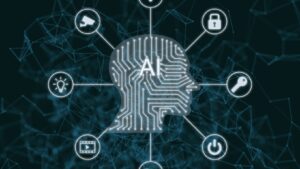The world of finance is undergoing a digital revolution, with Artificial Intelligence (AI) rapidly transforming how we track income, manage expenses, and make financial decisions. As AI capabilities continue to advance, a pressing question emerges: will AI eventually replace the need for human accountants altogether?
The short answer: most likely not. While AI holds immense potential to streamline and automate many accounting tasks, human accountants will remain crucial for the foreseeable future. Here’s why:
AI’s Strengths: Speed and Efficiency
- Data Entry and Bookkeeping: AI excels at handling repetitive tasks like data entry, invoice processing, and bank reconciliation, freeing up accountants’ time for more strategic work.
- Fraud Detection: AI algorithms can analyze vast amounts of data to identify anomalies and potential fraud much faster than humans.
- Financial Reporting and Analysis: AI can generate reports and identify trends in real-time, providing valuable insights for businesses.
The Human Edge: Judgment, Intuition, and Communication
- Complexities and Nuances: Accounting involves interpreting complex regulations, navigating tax laws, and making judgment calls based on specific situations. AI still lacks the human ability to understand these nuances.
- Client Relationships and Communication: Building trust and rapport with clients is vital for accountants. AI struggles to replicate the human touch needed for effective communication and client service.
- Strategic Planning and Business Advice: Accountants play a crucial role in advising businesses on financial strategies, investments, and long-term planning. AI cannot currently replace the human element of strategic thinking and business acumen.
The Future: Collaboration, Not Replacement
According to Warren Maris of Magnus Accountants in Capalaba Brisbane, the future of accounting lies in collaboration, not competition. AI will become a powerful tool for accountants, allowing them to:
- Focus on Higher-Value Tasks: By automating routine tasks, accountants can dedicate more time to providing strategic financial advice, conducting financial audits, and managing complex tax situations.
- Offer Enhanced Services: AI-powered tools can help accountants deliver more proactive and data-driven financial insights to their clients.
What this means for you:
- Accountants of the future: Accountants will need to adapt by developing skills in AI implementation, data analysis, and communication to best utilize AI tools and provide a more comprehensive service.
- Businesses: Businesses should view AI as a way to empower their accounting teams, not replace them.
- Individuals: While automation may change the way accounting is done, the need for financial expertise and human judgment will remain.
In conclusion, AI is unlikely to replace accountants entirely. Instead, it will become a valuable tool that transforms the way accountants work, creating an exciting future of collaboration and innovation in the field of finance.

















